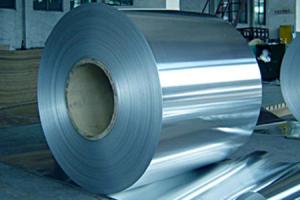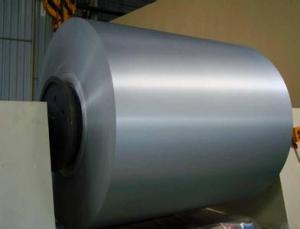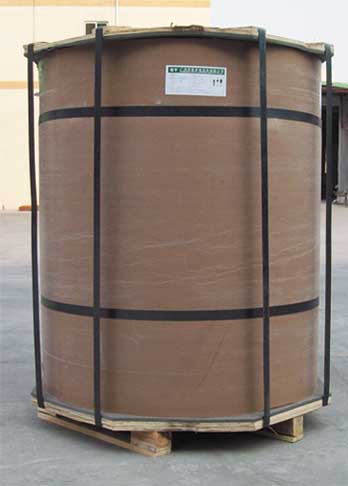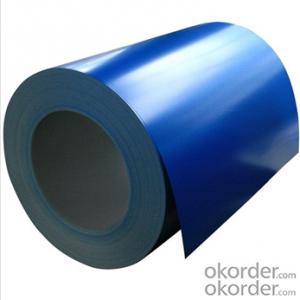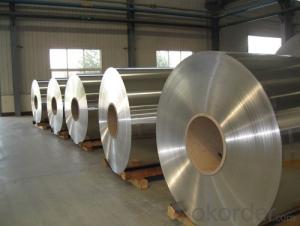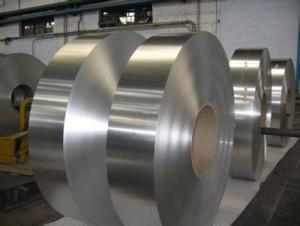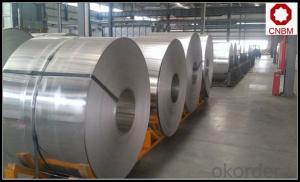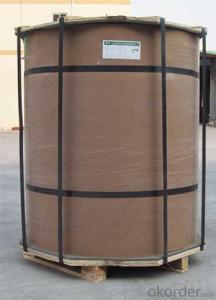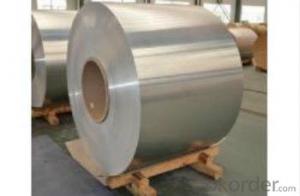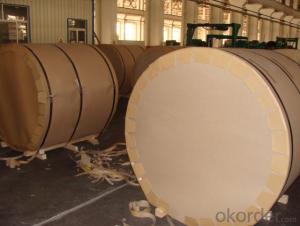1050 Aluminum Coil - Aluminum Strips Mill Finished 1xxx
- Loading Port:
- China Main Port
- Payment Terms:
- TT or LC
- Min Order Qty:
- 5 g/ft
- Supply Capability:
- 10000 g/ft/month
OKorder Service Pledge
OKorder Financial Service
You Might Also Like
1.Structure of Aluminum Strips Mill Finished 1XXX Description
Aluminum Strips Mill Finished 1XXX has great ductility, heat conductivity, anti-corrosion and moisture resistance properties.
Aluminum Strips Mill Finished 1XXX is widely used for electronics, instruments, lighting decoration, packing industry, house decoration, curtain wall, honeycomb-core panel, sandwich panel, aluminum composite panel and aluminum composite pipes.
2.Main Features of Aluminum Strips Mill Finished 1XXX
• Superior quality of raw material
• Reasonable and stable chemical composition
• Accurate tolerance
• Goode mechanical property
3.Aluminum Strips Mill Finished 1XXX Images
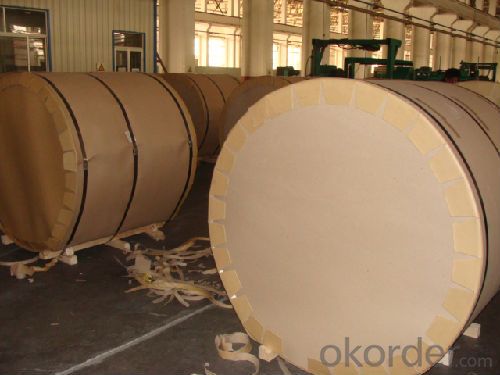
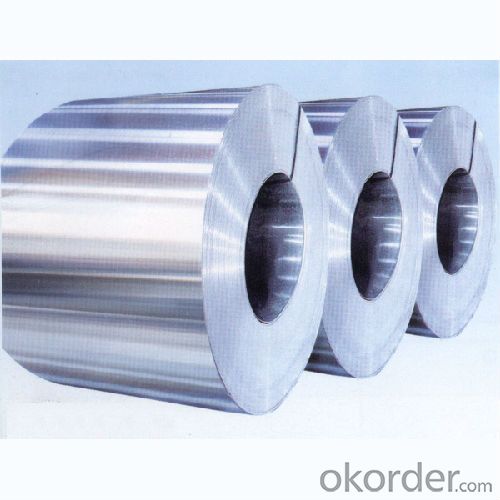
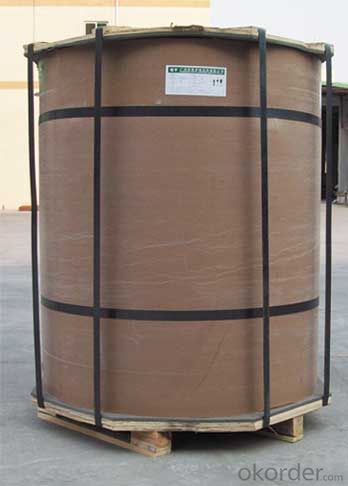
4.Aluminum Strips Mill Finished 1XXX Specification
| Alloy | AA1xxx (AA1050,AA1060,AA1070,AA1100 etc. |
| Temper | H14,H16,H18,H22,H24,H26,H32,O/F |
| Thickness | 0.2mm--100mm |
| Width | 30mm--1700mm |
| Standard | GB/T 3880-2006 |
5. FAQ of Aluminum Strips Mill Finished 1XXX
A.How to guarantee the quality?
Customers are welcome to our mill to visit and check the products. Besides, we can arrange a third party to test Aluminum Strips Mill Finished 1XXX products.
B.When will you deliver the products?
Aluminum Strips Mill Finished 1XXX will be delivered within 35 days after receiving advanced payment or original L/C.
- Q: What is the process of manufacturing aluminum coils?
- Manufacturing aluminum coils encompasses a series of steps. Initially, aluminum ingots or scrap are melted at high temperatures in a furnace. The molten aluminum is then moved to a continuous casting machine to solidify it into a long, thin slab known as a billet. Following that, the billet is heated and passed through rolling mills to decrease its thickness and form it into a coil. Referred to as hot rolling, this process encompasses multiple passes through the rolling mills, gradually reducing the aluminum's thickness. After hot rolling, the coil may undergo additional processes depending on the desired end product. For example, it may go through cold rolling to further decrease thickness and enhance the aluminum's surface finish. Cold rolling also imparts specific mechanical properties such as increased strength and hardness. Subsequently, the coil may be subjected to various surface treatments like cleaning, etching, or coating to improve its appearance and protect it from corrosion. These treatments involve chemical processes or the application of protective coatings. Finally, the aluminum coil is typically cut into smaller lengths, known as sheets or strips, and packaged for shipment to customers. These sheets or strips may undergo further processing like fabrication or forming to meet specific customer requirements. Overall, the manufacturing process of aluminum coils involves melting and casting the aluminum, hot and cold rolling to shape and refine it, surface treatments for protection and appearance, and cutting and packaging for distribution.
- Q: What are the environmental regulations concerning the use of aluminum coils?
- <p>Yes, there are environmental regulations that govern the use of aluminum coils. These regulations vary by country and region but often include restrictions on emissions, waste disposal, and recycling requirements. For instance, in the United States, the Environmental Protection Agency (EPA) enforces rules that control the release of pollutants from aluminum production facilities. Additionally, there are guidelines for the proper disposal of aluminum waste to prevent environmental contamination. Recycling regulations also encourage the reuse of aluminum coils to reduce the environmental impact of mining and production. Compliance with these regulations is crucial for businesses that manufacture or use aluminum coils to avoid penalties and ensure sustainable practices.</p>
- Q: This question asks if aluminum coils are susceptible to rusting.
- <p>Aluminum coil does not rust in the traditional sense. Instead, it forms a thin, protective layer of aluminum oxide when exposed to air, which prevents further corrosion. This oxide layer is different from rust, which is iron oxide. While aluminum can tarnish or corrode under certain conditions, such as exposure to certain chemicals or in extreme environments, it does not rust like iron or steel. Proper storage and handling can help maintain the integrity of aluminum coils and prevent unwanted reactions.</p>
- Q: Are aluminum coils suitable for signage applications?
- Yes, aluminum coils are suitable for signage applications. They are durable, lightweight, and resistant to corrosion, making them ideal for outdoor signage. Additionally, aluminum coils can be easily shaped and molded, allowing for various design possibilities in signage applications.
- Q: Are aluminum coils suitable for roofing applications?
- Yes, aluminum coils are suitable for roofing applications. Aluminum is a lightweight and durable material that offers many advantages for roofing projects. It has excellent corrosion resistance, which is important for protecting roofs from weather elements such as rain, snow, and UV radiation. Aluminum is also non-combustible, making it a safe choice for roofing applications. Additionally, aluminum coils are highly malleable, allowing for easy shaping and installation on various roof designs. They are also available in a wide range of colors and finishes, providing aesthetic options for different architectural styles. Overall, aluminum coils are a popular choice for roofing due to their durability, versatility, and aesthetic appeal.
- Q: What are the potential applications of mill-finished aluminum coils?
- Due to their versatile properties and finishes, mill-finished aluminum coils can be applied in a wide range of industries. Here are some potential uses for mill-finished aluminum coils: 1. In the building and construction industry, mill-finished aluminum coils have numerous applications. They can be employed for roofing, siding, wall cladding, gutters, and downspouts, among other purposes. The mill finish not only enhances the building's aesthetic appeal but also ensures durability and resistance to corrosion. 2. The automotive industry also utilizes mill-finished aluminum coils because of their lightweight nature, high strength-to-weight ratio, and resistance to corrosion. These coils can be used to manufacture body panels, trims, and other components, contributing to fuel efficiency and reducing the overall weight of vehicles. 3. The electrical industry benefits from mill-finished aluminum coils due to their electrical conductivity and corrosion resistance. These coils are employed in the manufacturing of electrical enclosures, transformers, busbars, and conductors. The mill finish guarantees high-quality surface finishes for these electrical components. 4. The packaging industry widely employs mill-finished aluminum coils because of their excellent barrier properties and formability. They are used to manufacture aluminum foil, cans, lids, and other packaging materials. The mill finish provides a smooth surface, making it suitable for printing and branding purposes. 5. Mill-finished aluminum coils are also used in the manufacturing of household appliances like refrigerators, ovens, and air conditioners. These coils offer lightweight and corrosion-resistant solutions for these appliances, ensuring durability and energy efficiency. 6. In the aerospace industry, mill-finished aluminum coils find applications due to their lightweight nature and high strength. They can be utilized to manufacture aircraft structures, interior components, and other parts. The mill finish provides a smooth surface, enhancing aerodynamic efficiency and reducing drag. 7. The marine industry extensively uses mill-finished aluminum coils for various applications. They are employed in the manufacturing of boat hulls, decks, and other components due to their corrosion resistance and lightweight properties. The mill finish ensures a clean and polished appearance, enhancing the vessel's aesthetics. In conclusion, mill-finished aluminum coils possess versatile properties such as lightweight, corrosion resistance, formability, and aesthetic appeal, making them suitable for numerous potential applications across various industries.
- Q: How are aluminum coils coated for corrosion resistance?
- Coil coating is the process used to apply a protective coating to aluminum coils in order to prevent corrosion caused by exposure to the environment. The first step in this process involves cleaning and pre-treating the aluminum coil to remove any contaminants, such as grease, dirt, or oxidation. Chemical cleaning agents are typically used, followed by rinsing to ensure no residue remains. Once the coil is clean, a primer is applied to act as a bonding agent between the aluminum surface and the subsequent coating layers. This primer enhances adhesion and provides an extra layer of protection against corrosion. After the primer, a topcoat is applied. This topcoat is usually a polymer-based paint that not only provides the desired color and appearance but also acts as a barrier against moisture, UV radiation, and other environmental factors that can cause corrosion. There are various techniques that can be used for the coating process, including roll coating, spray coating, or coil painting. The choice of technique depends on factors such as cost, production speed, and the desired coating properties. In some cases, an additional clear protective coating may be applied to further enhance the durability and longevity of the coated surface, providing an extra level of protection against corrosion. Overall, the coating of aluminum coils for corrosion resistance is a crucial step in ensuring the longevity and performance of products made from these coils. The specific coating process and materials used may vary depending on the application and desired performance requirements.
- Q: Are there any restrictions on the export or import of aluminum coils?
- The export or import of aluminum coils is subject to restrictions that vary depending on the country and specific regulations in place. These restrictions encompass various measures such as export licenses, quotas, and tariffs. Export licenses are often necessary to comply with export control regulations, particularly for sensitive industries or countries. Quotas restrict the quantity of aluminum coils that can be exported or imported within a specific timeframe. Tariffs, on the other hand, involve taxes imposed on imported goods, impacting the cost and competitiveness of aluminum coils in the market. Furthermore, additional restrictions may be imposed concerning quality standards, environmental regulations, or trade agreements between countries. Therefore, it is crucial for individuals or businesses engaged in the export or import of aluminum coils to conduct thorough research and gain a comprehensive understanding of the specific restrictions within their respective jurisdictions. Seeking guidance from legal or trade experts can facilitate navigation through these restrictions and ensure compliance with applicable laws.
- Q: And if the deodorant companies know that aluminum causes cancer, why do they keep putting it in their products?
- to okorder /
- Q: * How is hitting with a aluminum Wiffle Ball feel and work out?* Did you like the results you had hitting with a aluminum Wiffle Ball bat?
- I did her like this I did her like that I did it with a wiffle ball bat
Send your message to us
1050 Aluminum Coil - Aluminum Strips Mill Finished 1xxx
- Loading Port:
- China Main Port
- Payment Terms:
- TT or LC
- Min Order Qty:
- 5 g/ft
- Supply Capability:
- 10000 g/ft/month
OKorder Service Pledge
OKorder Financial Service
Similar products
Hot products
Hot Searches
Related keywords
